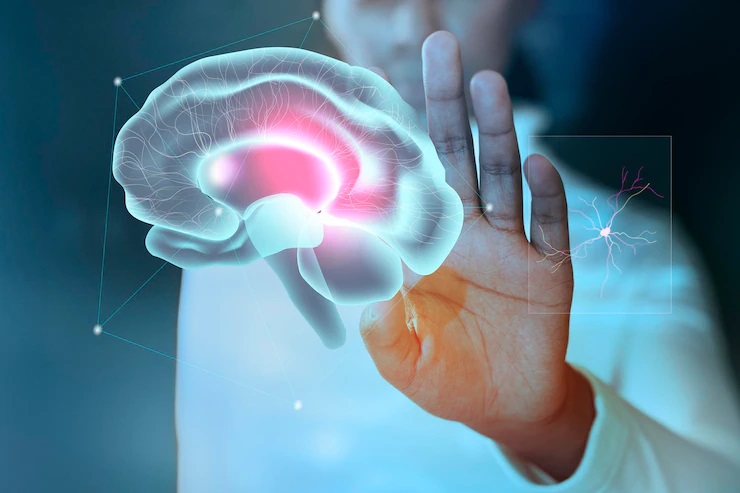Dementia is an incredibly difficult disease that affects millions of people all over the world each year. The effects of dementia on both the person with the disease and their loved ones can be devastating.
Although it can’t be cured, there are treatments available that help manage the symptoms associated with dementia to improve quality of life and reduce symptoms or even slow down or stop the progression of the disease.
One of the alternative remedies that some have found helpful in treating dementia, particularly Alzheimer’s disease, is kratom. This herb comes from Southeast Asia and has been used medicinally and recreationally by those who live in the area for centuries.
Now many people across the US have been widely using Kratom as an alternative to relieve discomfort and pain to benefit from its energizing and relaxing benefits.
But can Kratom also help with dementia?
Keep reading to find out!
How Does Dementia Look Like?
Dementia is a group of symptoms that together impair the ability to function in everyday life. It’s not a disease but rather a symptom of another disease or condition. Dementia occurs when the brain stops working properly.
Symptoms of dementia include memory loss, confusion, difficulty communicating, and behavioral changes. These symptoms can vary in severity, but they can all be treated with medications and therapy.
In some cases, people with dementia have trouble remembering names or faces. This may indicate mild cognitive impairment (MCI), which is not enough to qualify as dementia. MCI often progresses into Alzheimer’s disease or another form of dementia.
Can You Use Kratom For Dementia?
Kratom is a plant native to Southeast Asia that has been used for centuries to treat pain and stress. The active compounds in kratom are mitragynine and 7-hydroxymitragynine, which are believed to benefit those suffering from dementia.
Currently, no scientific evidence supports the use of kratom for dementia. But users have suggested that kratom may help improve cognitive function in those with dementia by relieving pain and boosting mood.
Moreover, some studies have shown that it can help with sleep disturbances and agitation. However, there is a need for more research to support the use of kratom as a remedy for dementia or Alzheimer’s disease.
What Do Kratom Users Think About Using The Herb For Dementia?
So far, kratom has resulted in some good experiences for many people with dementia, according to their personal experiences on Reddit.
One kratom user who uses kratom to treat discomfort and pain describes the herb as a ‘useful medicine’ for their grandmother, who suffers from moderate dementia.
Here’s how they describe their experience:
“My grandmother suffers from dementia. She’s in her 6th year, meaning she’s in the moderate stages of this disease.
She still has really good days, but recently she’s been couch-locked due to a very minor foot injury. She just sits in one spot and cries and wails all day long (for attention), complaining about her foot and repeating herself. The doctor told us it will heal in the next few weeks, so I’ve been trying to remind her of this, but it just does not stick with her.
I decided to give her a few of some red strain capsules I acquired recently for my trigeminal neuralgia, I told her it helped my pain so that it may help hers too. In the next hour, she was the most normal I had seen my grandmother in years. She was telling old stories, laughing, and listening to old music she enjoyed as a teenager, and she kept repeating, “this medicine helps calm me down”.
Benefits Of Using Kratom For Dementia
Here is how kratom can help improve the symptoms of dementia to boost the quality of life:
Neuroprotective Effects
In a review published in the Journal of Cellular and Molecular Anesthesia, the authors emphasized the need to study kratom’s effects to focus on its neuroprotective effects in brain aging.
According to the review, Mitragyna Speciosa (kratom) has high antioxidant levels that can help fight the oxidative stress associated with aging. This needs to be explored further by researchers to suggest the use of kratom for dementia.
Helps With Stress
Kratom is known as an adaptogen which means that it can help the body adapt to physical and mental stressors, such as illness, exercise, or low mood. It does that by boosting your energy level without making you feel hyperactive. This helps people with dementia experience a relaxed state and feel the soothing effects of kratom.
Improves Cognitive Performance
Kratom may be able to improve cognitive performance in users and can help with the symptoms of dementia. The capability of our brain to use the knowledge acquired through various mental processes is referred to as cognitive performance. Providing our brain with the ability to control all voluntary and involuntary functions such as perception, emotions, memory, moods, and attention is key to its functioning well.
Kratom contains several active alkaloids, including mitragynine and 7-hydroxymitragynine. Both of these alkaloids are beneficial when it comes to improving cognitive function.
Boosts Mood
Kratom is known to improve mood in many ways. Patients with dementia may find this natural herb helpful in calming their minds and producing soothing effects. As result of reducing stress levels and promoting relaxation, it can help maintain a stable mood.
Best Strains To Use
Since the focus is on improving the brain’s ability to function well, the kratom strains that are beneficial for this are:
White vein kratom can help people with dementia experience increased energy and mental clarity. Green vein helps promote a sense of relaxation with long-lasting effects. Lastly, the red vein can help improve focus and alertness but should be used carefully since it can also cause some sedative effects.
What Should Be The Dosage?
The dose of kratom for someone with dementia is based on what works for the individual patient. For example, if they want to take kratom to relieve stress and discomfort, they may need a higher dose to achieve relief than someone taking it solely to relax or boost energy levels.
Some people report feeling more alert after taking kratom, while others report feeling less anxious or even sleeping better. However, because no two people react the same way to kratom, there isn’t enough evidence yet to suggest that it’s safe in high doses among those with dementia.
It is usually suggested to take a low dose of kratom to achieve desired results while also avoiding any adverse effects. Before doing this, make sure you consult a doctor to keep the condition in check.
Are There Any Risks Involved?
There are a few risks associated with taking kratom for dementia, but it is not yet approved by the FDA. Some people may experience side effects like nausea, vomiting, and lethargy. These side effects should only last for a few days before subsiding. Other potential risks include an allergic reaction or the possibility of addiction (though this is rare).
However, you choose to use kratom, make sure you:
- Get clearance from your health advisor to put the symptoms and dosage in check
- Start with small doses to avoid unwanted effects
- Buy kratom from trusted vendors who sell third-party tested and high-quality products
The Bottom Line
Kratom seems to have the potential to improve cognitive function and neuroprotective effects on the brain. The herb can be helpful for people with dementia if it becomes more regulated so that researchers can explore its promising effects.








